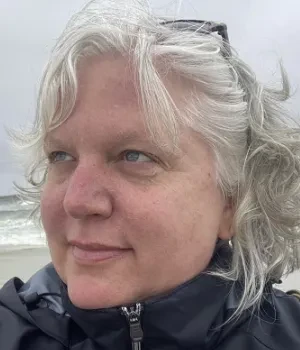
Jennifer Jordan
- Professor, Sociology
- Professor, Urban Studies
Education
PhD, University of California–San Diego
Office Hours
On Sabbatical
Courses Taught
- SOCIOL 380: Honors Seminar - The Sociology of Beer and Brewing
- SOCIOL 715: Systematic Sociological Theory
- SOCIOL 923: Seminar on the Sociology of Culture
- USP 983: Contemporary Urban Social Structure and Change
- SOCIOL 101: Introduction to Sociology
- SOCIOL 375: Social Theory
Research Interests
- Urban Sociology
- Sociology of Culture
- Theory
- Europe/Germany
- Sociology of Food
- Beer and Brewing
Media Interviews
Jennifer Jordan on Women and Hops, on the Beer Ladies Podcast:
Jennifer Jordan on Tomatoes and Collective Memory, on RadioWest/KUER with Doug Fabrizio:
Selected Publications
Jordan, Jennifer A. Before Craft Beer: Lost Landscapes of Forgotten Hops, under contract with the University of Chicago Press.
Jordan, Jennifer A. Edible Memory: The Lure of Heirloom Tomatoes and Other Forgotten Foods Chicago, Illinois: University of Chicago Press. 2015.
Jordan, Jennifer A. “Apples, Identity, and Memory in Post-1989 Germany” Debating German Cultural Identity 1989 -2009 Ed. Fuchs, Anne, and James-Chakraborty, Kathleen. Camden House. (2011).
Jordan, Jennifer A. “Landscapes of European Memory: Biodiversity and Collective Remembrance” History and Memory 22.2 (2010): 5-33.
Jordan, Jennifer A. “Elevating the Humble Dumpling: From Peasant Kitchens to Press Conferences” Ethnology 47.2 (2009): 20-41.
Jordan, Jennifer. “The Heirloom Tomato as Cultural Object: Investigating Taste and Space” Sociologia Ruralis 47.1 (2007): 20-41.
Jordan, Jennifer A. Structures of Memory: Understanding Urban Change in Berlin and Beyond Stanford, California: Stanford University Press. 2006.